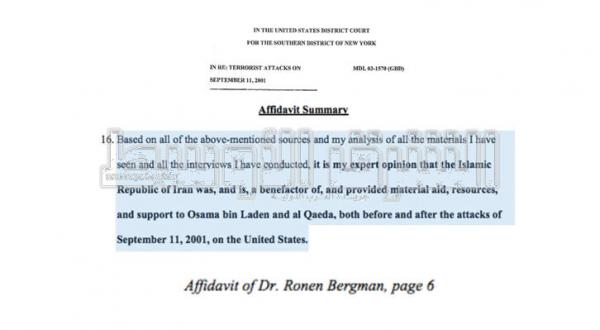A New York court has rendered a judgment in excess of $22 billion against the Iran government for involvement in the September 11, 2001 terrorist attacks.
The order was based on testimony from witnesses documenting a longstanding relationship between Iran and Al-Qaeda which enabled the latter to perpetrate not only the September 11 attacks but also acts of terrorism before and after the New York tragedy.
The allegations, attributed to a spread of sources including Guantanamo Bay interrogations, point to material support by Iranian intelligence cadres and the IRGC-Qods Force to Al-Qaeda during the 1990s.
Several documents refer to Tariq al-Sharabi, a Tunisian man arrested in Italy in April 2001 for affiliation with al-Qaeda. Prior to his arrest, Al-Sharabi had been assured by an Al-Qaeda agent that a “ratline” of safe passage to Iran had been established for the group, as part of broader cooperation with the Tehran regime.The operative told Sharabi that Iran was increasingly displacing Pakistan as Al-Qaeda’s preferred transfer route, due to concerns that networks in Pakistan had been compromised.
Another name appearing in the plaintiffs’ documents was Ramzi bin al-Shibh: They refer to al-Shibh as the ‘executive director’ of the September 11 attacks. He had met with the hijackers’ ring leader, Muhammad Atta, earlier in 2001: They traveled together to Afghanistan via Iran to report on progress in the operation to Osama bin Laden and Ayman Al-Zawahiri.

